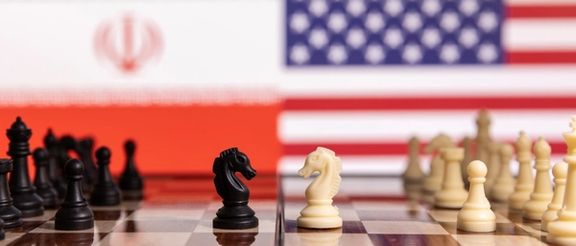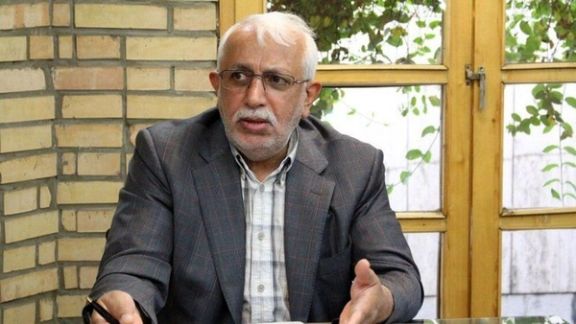Debates In Tehran Continue Over Iran-US Prisoner Deal

A former Iranian diplomat says media speculations about the Iran-US prisoner swap deal being part of a wider agreement seems to be a rumor.

A former Iranian diplomat says media speculations about the Iran-US prisoner swap deal being part of a wider agreement seems to be a rumor.
Iranian media and some observers on both sides say domestic politics in both countries can affect the deal's fate.
Qasem Mohebali, told Didban Iran [Iran Monitor] website that any permanent and official deal between Iran and the United States is unlikely before the US presidential elections.
Asked whether Iran deserved an "oil for food" deal, Mohebali said, "Iranian officials should have thought of this before their policies led to its nuclear case being referred to the UN Security Council.
Iran has effectively lost its political and financial independence after its nuclear case was handed over to United Nations Security Council, he said, and a series of resolutions were issued against it (2006-2012). Mohebali argued that at the present time also Iran has little control over its international economic and financial transactions, as other states decide what it can have and to what extent.
As regards possible links between the prisoner swap and nuclear negotiations, Mohebali said these are two different issues. The prisoner swap is important for the United States from a humanitarian perspective and Iran is interested in repatriating its money. But the nuclear negotiations must be discussed within a different context.

He added that the prisoner swap will be a positive point for US President Joe Biden and other US Democrats although there is still a long way before the elections. Iran and the United States have many different matters to discuss, the former diplomat pointed out, including the nuclear issue, the Middle east, human rights, missile development, terrorism and most recently Iran's contribution to Russia's war against Ukraine. Every single one of these issues should be dealt with separately, a package deal involving all of them looks is not very likely.
Mohebali added, it is unlikely that Iran and the United States start negotiations about these matters before 2025 after the US elections. Iran is not certain about the policies of the next administration and is not certain if it will stand by an agreement with the Biden Administration.
"What US government is currently doing is helping innocent individuals to get out of prison. However, its political rivals might question the payments made during the swap. At the same time, others accuse the US of taking Iran's assets hostage. Still others might ask whether the prisoners to be released are Iranians or US citizens," Mohebali explained.
Meanwhile, in an article about what might go wrong in a deal between Iran and the US, proreform website Fararu wrote: "The test agreement to secure the release of Iran's assets and the freedom of prisoners in the two countries might come across problems and its entirety could come under a shadow of doubt during the weeks before it is finalized."
The website argued that despite the apparent diplomatic victory, it is still too early to be optimistic about the deal. One of the hindrances might be the deployment of US Marines to oversee shipping along the Strait of Hormuz.
Referring to Qatar's role in forging the Iran-US deal, Fararu wrote that Doha does not want to see any tension between Iran and the United States. Nonetheless, despite Qatar's help, there is still the danger of a conflict between Iran and Washington in the volatile Persian Gulf.
According to Fararu, at the same time, domestic politics both in Iran and the United States can make matters complicated. The Biden Administration has already been accused by some US lawmakers and others of bribing the Islamic Republic. In an August 14 tweet, Holly Dagres, a senior fellow at the Atlantic Council wrote that she told AFP: "if a hostage deal is implemented around the Mahsa Amini protests anniversary, it'll be a win for the clerical establishment. Doing a deal with the United States around such a sensitive period is, in essence, communicating to protesters that Washington doesn't care about their plight.”
Meanwhile, United Against of Nuclear Iran (UANI) on the same date quoted the White House Spokesman as having said that "Iran will only be able to use the $6 billion [released by South Korea] for “humanitarian purposes.” However, UANI asked: “In a competition for the funds between the Islamic Revolutionary Guard Corps and the public health of the Iranian people, who do you think wins?”